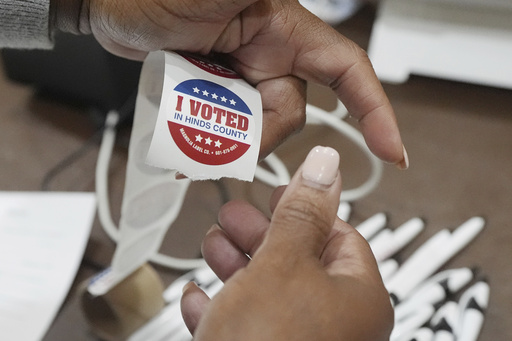
A panel from a federal appeals court has drawn criticism for its interpretation of both federal and state laws regarding the counting of mail-in ballots in Mississippi. Two advocacy groups, the Vet Voice Foundation and the Mississippi Alliance for Retired Americans, are requesting that the entire 5th U.S. Circuit Court of Appeals re-evaluate a decision issued on October 25, which stated that mail-in ballots would not be counted if they were postmarked by Election Day but arrived a few days later.
The recent ruling did not have an impact on the counting of ballots for the upcoming November 5 election, as the three-judge panel indicated that judicial actions altering established procedures shortly before an election are generally discouraged. Nevertheless, this case holds potential ramifications for voting practices nationwide, particularly if the Supreme Court decides to take up the matter.
In legal documents submitted Friday, the attorneys representing the Vet Voice Foundation and the Mississippi Alliance for Retired Americans contended that the appeals court had erroneously suggested that the deadlines for receiving ballots after Election Day were a modern development. They noted that the practice of counting ballots cast by Election Day but arriving later traces back to the Civil War era, when soldiers were allowed to vote from the field and send their ballots back to their home precincts.
The legal representatives further pointed out that numerous states maintain statutes that permit the counting of ballots that are postmarked by Election Day but received afterwards. They emphasized that Congress has recognized and sanctioned these laws for over fifty years, contrary to the panel’s assertions.
The three-judge panel from the conservative appeals court overturned a decision made in July by U.S. District Judge Louis Guirola Jr., who had previously dismissed challenges presented by the Republican National Committee and the Libertarian Party of Mississippi regarding the state’s election law. Richard Hasen, a law professor at UCLA, characterized the panel’s ruling as an illogical opinion in his election law blog, noting that similar arguments have been rejected consistently by other courts.
After facing criticism for filing over 100 lawsuits regarding various voting issues post-2020 elections, Republicans have been scrutinized for their late attempts to challenge the voting process once votes had already been cast. Several swing states, including Nevada, and other mail-focused states like Colorado, Oregon, and Utah, allow ballots to be counted if they are postmarked by Election Day and arrive later.
In Nevada, a federal judge dismissed a comparable lawsuit concerning the counting of mail-in ballots in July. Meanwhile, the Republican National Committee is seeking to revive the case in the 9th Circuit Court of Appeals. Judge Guirola previously stated that Mississippi’s laws do not violate federal election regulations. The lawsuit against the state claimed that it improperly extends the federal election period, leading to a dilution of timely and valid ballots by those deemed untimely.
Disagreeing with this assertion, Guirola clarified that Mississippi’s law does not change the final selection of voters after Election Day; rather, the law pertains solely to the delivery and counting of ballots that were cast prior to the deadline. While the challenge in Mississippi was initiated by Republican and Libertarian groups, there is a notable level of bipartisan support for maintaining the state’s current practices, with Mississippi Attorney General Lynn Fitch and Secretary of State Michael Watson, both Republicans, defending the state’s procedures.
